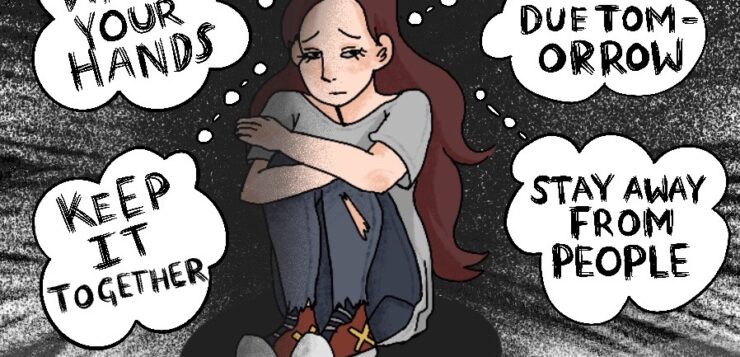Coronavirus has had a greater impact than simply on those infected, and for many people, their mental health has been hit hard. I have suffered from anxiety and depression for about three years. Usually, I function quite well, but when I have bad days it can have a profound impact on my ability to do even the smallest things. Like for many people, the pandemic and lockdown has made this a lot harder.
In mid-March this year, it was suddenly announced that the end of term was going to be brought forward by a week. As naïve and self-centred as it sounds, this whole Covid-19 thing was suddenly something real in my life, not just a poster in Hartley saying to wash our hands more. It wasn’t something happening somewhere else to other people. It was real.
Then, on March 23rd, those of us left in our student house huddled together to watch Boris Johnson address the nation, announcing the start of lockdown. I remember feeling scared and uncertain. We had no idea how long it would last for, or how effective it might be. But there was a strong sense that things would not be normal again for a very long time, if ever.
The first time I went food shopping during lockdown was terrifying. I remember feeling incredibly self-conscious as I desperately tried to avoid other people who were less fussed about keeping their distance. I couldn’t breathe and I felt like I was going to have a panic attack right in the middle of Tesco.
Things got even harder when uni resumed online. I love what I study, and I so desperately wanted to throw myself into it, but I just didn’t have the concentration or energy. Keeping up with all the work I had to do was exhausting and the mental drain was making me physically sick. I wasn’t looking after myself and often I would just lie on my bed and stare at the ceiling feeling nothing.
So I really needed help. I referred myself to a counselling service with an online form and an assessment was set up. Everything was done over phone calls or online, because in person meetings were, for obvious reasons, not possible. Opening up to a stranger about all the ways in which I was struggling over the phone was not easy.
The assessment was really hard on me. I cried a lot. There were things they asked that I couldn’t answer so I panicked and froze. But they were patient with me and sympathetic. I was worried about feeling judged or pitied, but I wasn’t. It was a relief more than anything, despite how difficult it was getting through it at first.
I was referred for six weeks of CBT, done through weekly 30-minute phone calls. I didn’t like how short the sessions were, but slowly we started making progress. The physical symptoms are still there and probably always will be, but I was taught how to manage my thoughts and given strategies to make them less overwhelming. I am better equipped to deal with them now, and the bad days aren’t quite so bad anymore.
I know that not everyone is lucky enough to have a positive experience with the system, and there are a lot of people with similar problems or worse who are scared to get help, or don’t know how. I’m grateful to have people around me who support me and pushed me to do this. This pandemic has been hard on everyone, so if you are struggling then you’re not alone. There is help out there.




